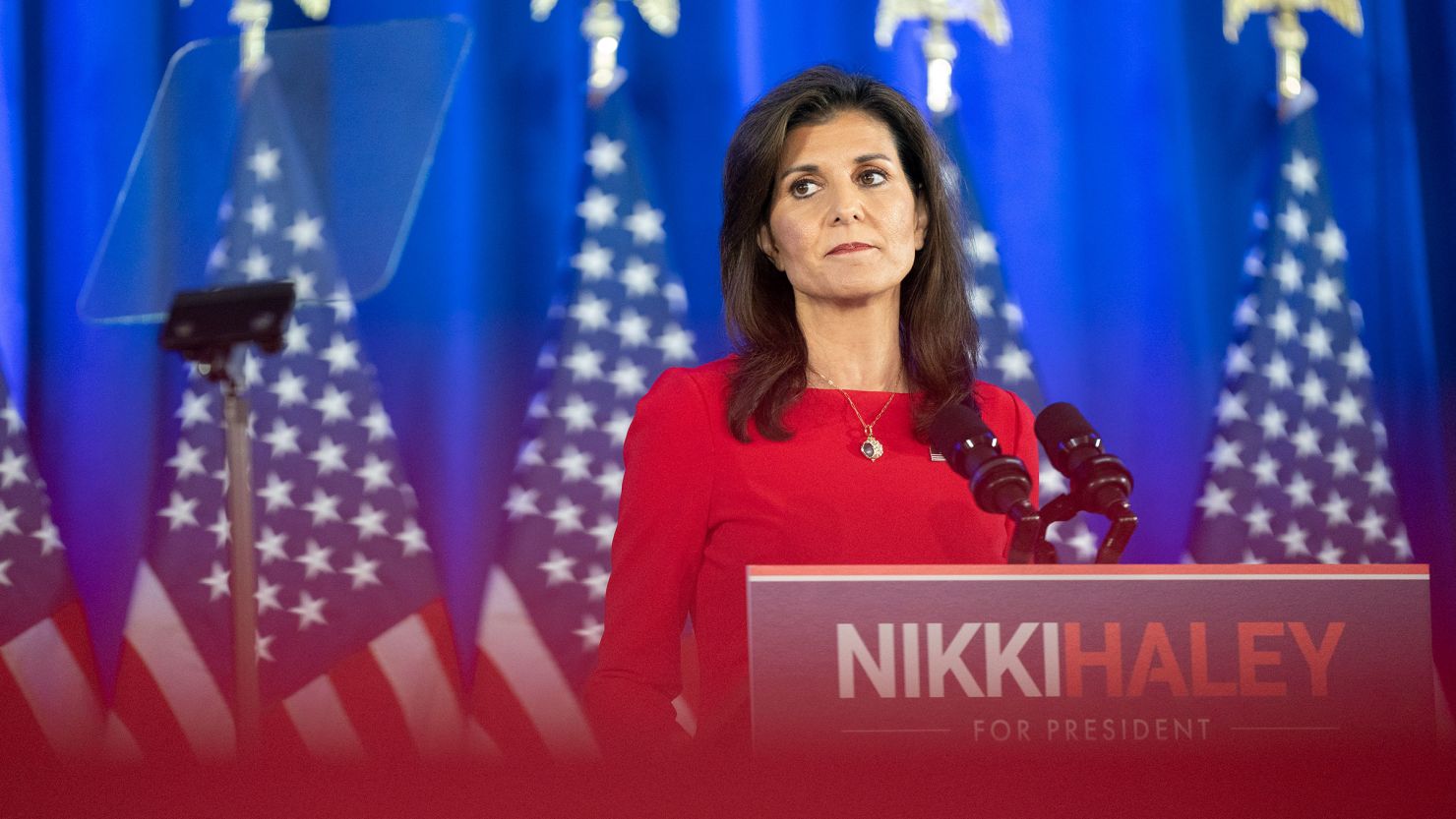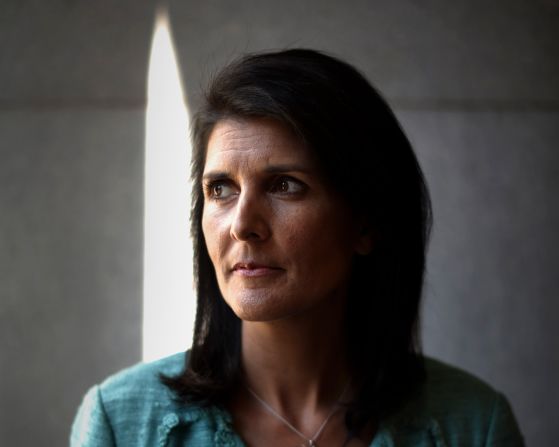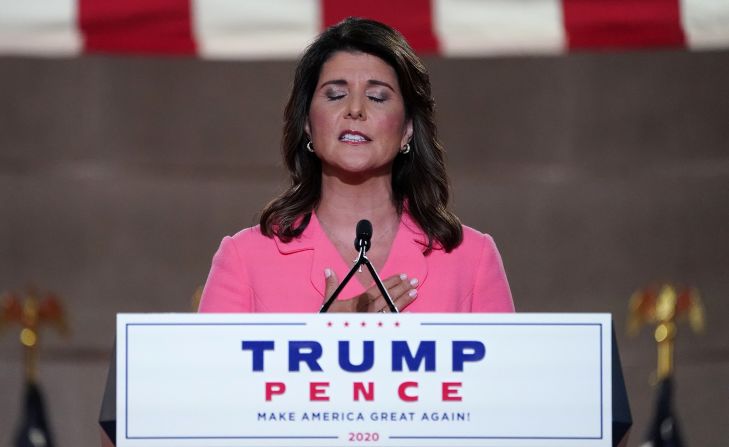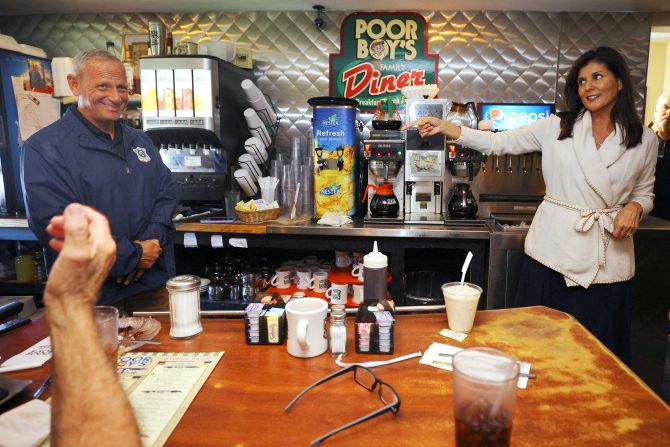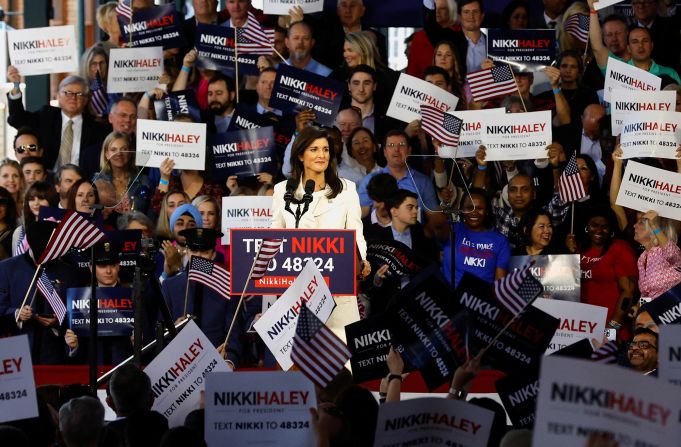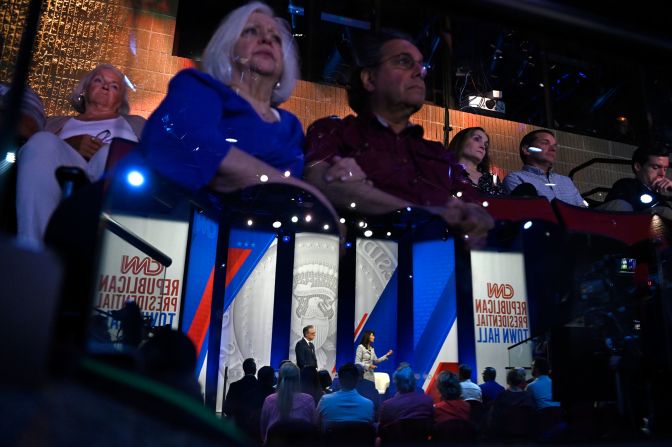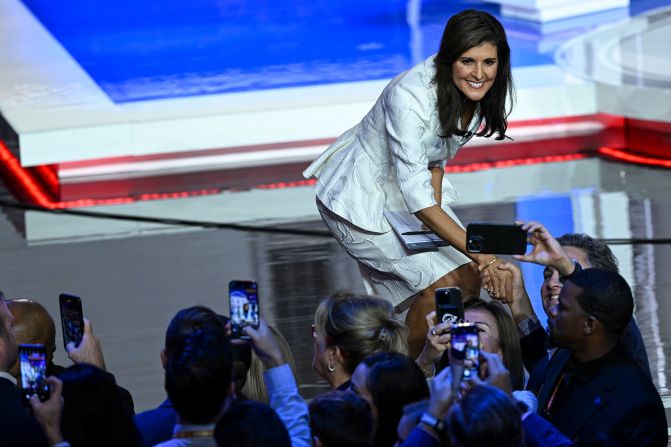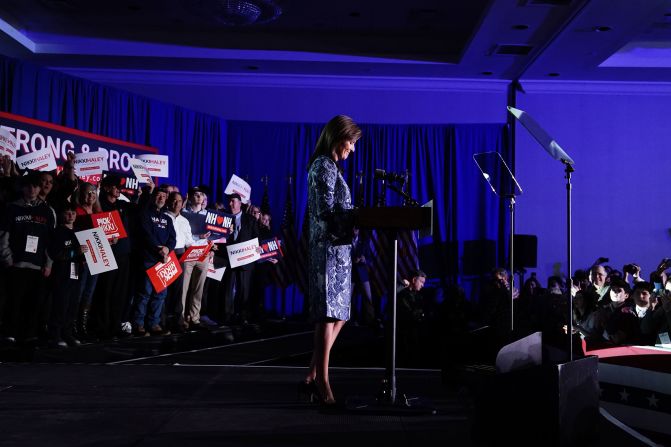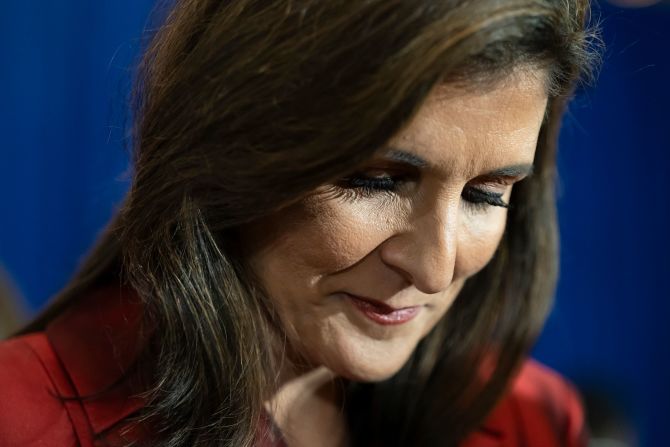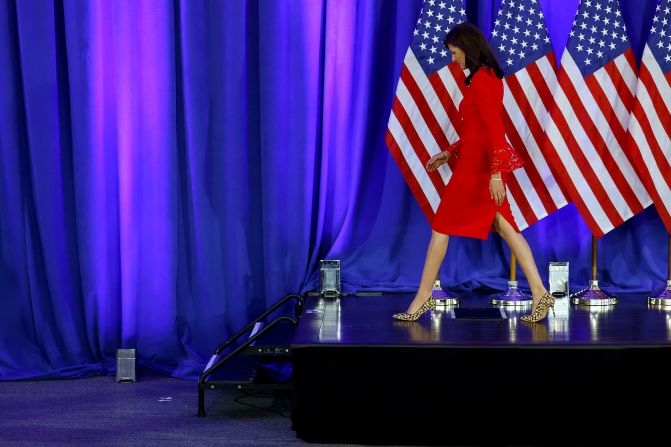Since the night of the New Hampshire primary, Nikki Haley has faced one constant question: when would she drop out?
It came from GOP party leaders, who called on her to suspend her campaign as former President Donald Trump racked up more wins, and from political observers who assumed she would rather leave the race than face a potentially embarrassing defeat in her home state of South Carolina.
But for weeks, Haley made clear publicly and privately that the make-or-break point of her campaign would come on Super Tuesday, when GOP primary voters in more than a dozen states, including delegate rich California and Texas, weighed in.
When they did, the answer was crystal clear: Trump won nearly every contest that night, save for Vermont, where his remaining primary rival eked out a victory.
“I said I wanted Americans to have their voices heard,” Haley said hours later as she suspended her campaign Wednesday morning. “I have done that. I have no regrets.”
Haley had been the first of Trump’s challengers to launch her campaign, and became the last to suspend it. The nearly 13 months of campaigning had come to an end, with Haley becoming the first woman to win a GOP primary contest – but also with Trump still sailing toward his third straight presidential nomination in a row.
For now, Haley faces a new question: will she endorse Trump? On Wednesday, she did not, instead calling on the former president to practice the politics of addition and “earn” the vote of those who didn’t back him. Her goal is to open up a conversation about issues within the Republican Party, and to push the party towards unity.
In the days leading up to her decision to suspend her bid, her campaign received a significant amount of feedback on the subject of endorsing Trump or not, sources familiar with recent discussions told CNN.
People who are close with Haley have different opinions. Some believe that it would be good for her to back Trump because she would be viewed as a team player. Others ardently oppose her endorsing him because that would give Haley the freedom to be critical of Trump and build her own movement. One of those voices told CNN that they believed Haley’s remarks on Wednesday were too forgiving of Trump, particularly when she expressed her “hope” that Trump will be successful in earning the vote of her supporters.
The two separate camps have shared those opinions with Haley and her campaign in recent days and weeks, sources said.
Haley herself has recently said that she is not focused on endorsing anyone because she is focused on winning herself. She has also pointed to her support, which reached 30-40% in a handful of states, as a sign of Trump’s weakness. According to CNN exit polls in New Hampshire, South Carolina, Virginia, North Carolina and California, only 19% of Haley supporters said they would be satisfied with Trump as the nominee; 79% said they would be dissatisfied.
In pictures: Former South Carolina Gov. Nikki Haley
Kimberly Rice, a former New Hampshire representative who served as a co-chair for Haley’s campaign in the Granite State, said she was one of the Haley voters Trump would have to work to win over. She referenced the former president’s statement that Haley’s donors would be “barred permanently” from MAGA world, a move she said she and others took seriously and personally.
“It’s one thing to attack a fellow candidate especially on policy issues,” she said. “But when you go for the jugular and you go for personal issues, and then you attack the supporters like that, I think you have to swallow a little humble pie, and try to work on bringing them back in.”
Unmet goals
Top officials on Haley’s campaign told major donors in recent weeks that Super Tuesday would dictate whether or not Haley stayed in the race, according to two sources familiar with the discussions.
They made a persuasive case in these private conversations. Staying in the race through Super Tuesday would give Haley’s team more data about the GOP electorate, the sources said. Haley’s team wanted that data before making the call to suspend her campaign, instead of pulling the plug after only a few states had voted.
The benchmark for success was 40% of the vote, building on her previous performances in the early states. Haley ultimately hit that target in just two of the states that voted Tuesday, Utah and Vermont.
As a result, most donors are not surprised by Haley’s decision to drop out Wednesday, particularly because they didn’t expect the outcome in the Super Tuesday states to be better than Haley’s previous performances.
“She made the right decision and she ran a good race,” said one of the donors. “It was an impressive and smart approach to challenging Trump.”
Haley herself engaged in outreach to some top donors very late Tuesday night, one source said. Members of Haley’s team also reached out to top donors to say she was dropping out, sources explained. It is too early to tell where the donors go from here, sources said.
As Haley rose in the polls last fall, she gained the backing of several wealthy donors eager to boost a promising alternative to Trump. That support was both a benefit and a burden as her Republican opponents, including Florida Gov. Ron DeSantis, argued that she was beholden to her donors. Haley countered her rivals were jealous they weren’t getting that support.
Americans for Prosperity, the political network associated with billionaire Charles Koch, endorsed Haley last November and aided her until the day after the South Carolina primary, when the group said it would stop spending money on her.
‘Won’t just go away’
In the weeks between the January 23 New Hampshire primary and the February 24 South Carolina primary – when questions rose about how long her campaign would last – Haley began investing time and money in Super Tuesday states to help quell rumors she might drop out.
“I’m not going anywhere,” Haley told supporters at an event in Costa Mesa, California, in early February. “I’m willing to take the bruises. I’m willing to do the fight and go through the pain. All I’m asking is that you stand there with me.”
Haley held more than a dozen events in 10 Super Tuesday states, including Texas, Massachusetts and Virginia.
Overall, Haley’s network spent about $82 million on ads, with about $17.9 million coming from her campaign, and $64.4 million from SFA Fund, the lead super PAC supporting her bid. In addition, Americans For Prosperity Action, the Koch-aligned super PAC backing Haley, spent about $8 million on ads supporting her.
But that spending shifted in her final week of the race. Haley did not make new investments in television advertising, a decision that was far from unanimous among some of her top supporters and donors who believed she could have made a stronger run against Trump in suburban areas of North Carolina, Virginia, Texas and beyond.
It is unclear how much money Haley will close her candidacy with, but the candidate who has reminded supporters at virtually every campaign stop that she is an accountant by trade was intently focused on not going into debt or spending more than her chances warranted, an adviser said. She can also reserve any of her finances for future political endeavors, should she have a future in the Trump-controlled Republican Party.
Haley “won’t just go away,” said Katon Dawson, a longtime Haley ally and former chair of the South Carolina Republican Party.
“This is not the last you’ve seen of Nikki Haley,” he said. “She will know who her friends are and, I promise, remember who was against her efforts in this endeavor.”
CNN’s Ebony Davis, David Wright and Jennifer Agiesta contributed to this report.


